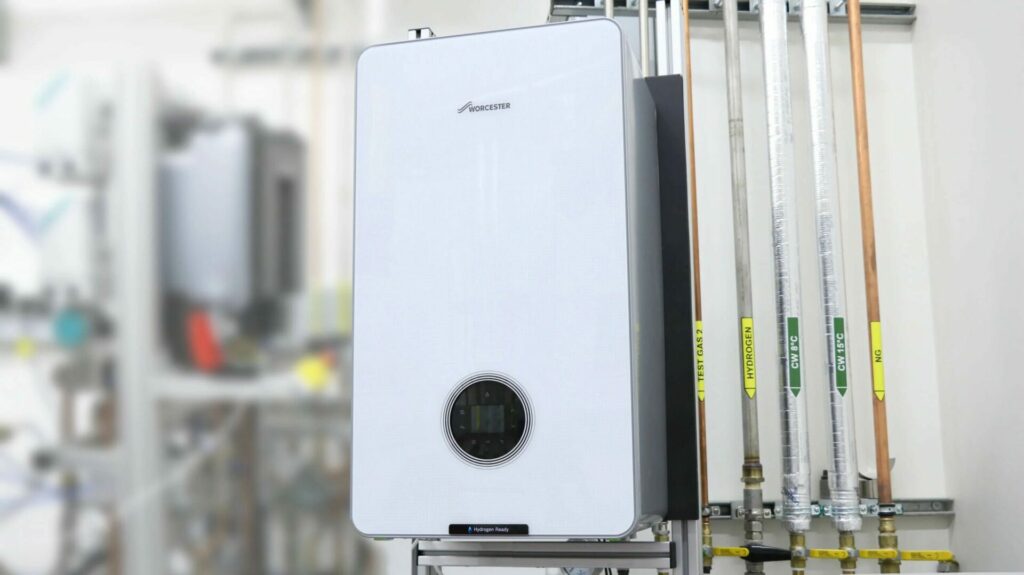If Brussels is to reach its goal of reducing CO2 emissions by 47% by 2030, Belgian energy network operator Sibelga will have to rapidly rethink how the capital's homes are heated.
Heating by far accounts for the largest share of household energy consumption in Europe. In Belgium, 72.7% of final consumer energy consumption is used to heat homes. More problematic, 38.7% of household energy comes from natural gas, which is used to heat water and homes. To compound the problem, much of the capital’s buildings are poorly insulated and guzzle energy.
In the context of a wider green transformation of Belgium’s energy infrastructure, Sibelga is now exploring the possibility of heating homes with hydrogen, according to La Libre.
Could Brussels go blue?
In a joint study with international consultancy companies Deloitte and Sweco, hydrogen heating would be the most efficient way for the city to achieve complete carbon neutrality by 2050.
But how would this work? Sibelga has not finalised any plans or even confirmed its intention to pursue hydrogen power. Some suggest that the new heating system could utilise existing gas infrastructure and pump it with “blue hydrogen” – created by electrolysing water. However, this process is extremely energy intensive and therefore requires renewable (or nuclear) energy to be environmentally viable.
“Our study concludes that there are no major problems with using hydrogen fluid in the gas network,” Bruno Deremince, innovation officer at Sibelga told La Libre Belgique.
Most of the city’s pipes and heating infrastructure is steel and polyethylene. New boilers would be installed across the city, which are designed to run on hydrogen gas.
On paper, this change could work, albeit with some minor adjustments. Hydrogen heating may not be the most logical solution to the city’s energy woes, but the consultancy companies insist that the fledgling technology would ultimately be cost-effective and efficient.
Related News
- 2021 a disappointing year for renewable energy
- Brussels and Antwerp make progress on global index of sustainable cities
- FPS Economy launches mass survey to develop emergency energy protocol
Other solutions, although applied in other major European cities, do not meet the needs of Brussels. For instance, city-wide all-electric heating would require insulating all the city’s buildings and equipping them with expensive heat pumps.
In Brussels, 60% of homes are rented and most are very old. The renovation rate in Brussels is just 1%. Many Brussels residents simply cannot afford extensive home renovations and the regional administrations are short on funds.
“There is a consensus that heat pumps are the best solution for heating well-insulated buildings,” the CEO of Sibelga, Inne Martens, told the Belgian newspaper, “but to heat poorly insulated homes, other solutions need to be considered.”
Many countries already use a “hydrogen blend” for heating, utilising 20% hydrogen gas and 80% natural gas to increase carbon efficiency.
Practical concerns
The Brussels proposal is not without its detractors. Experts have already raised eyebrows at the feasibility of adapting the city to such a radical change. The role of green hydrogen in sectors such as transportation is already being developed but there is no consensus on whether it is well adapted to heating.
Hydrogen is not commonly used in residential applications and there is a risk of explosions. Yet Deremince calls this "a matter of perception,” adding that “Gas is sometimes considered risky. However, there are more accidents per Kwh of electricity than with gas.”
Some have even accused Sibelga of trying to save its gas network, which is being phased out in many parts of Belgium. The Flanders Government announced on 8 June that it would ban natural gas heating in new homes by 2025.
“For hydrogen to be a solution in Brussels, a global market will have to develop. Brussels will have to import almost all of its hydrogen, especially for regions with a high level of energy consumption,” the CEO Sibelga conceded.

